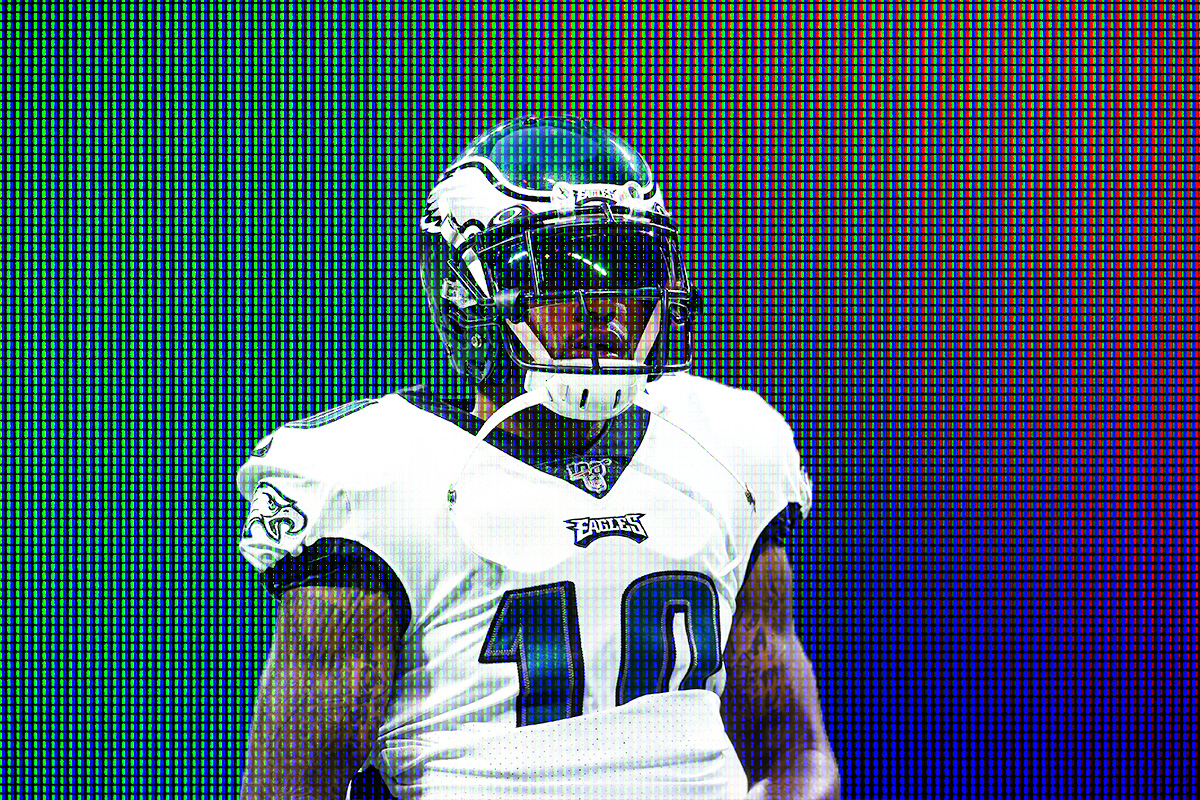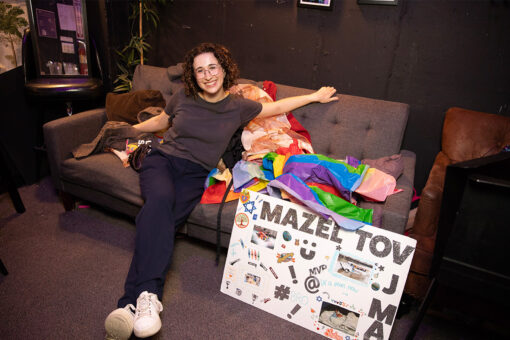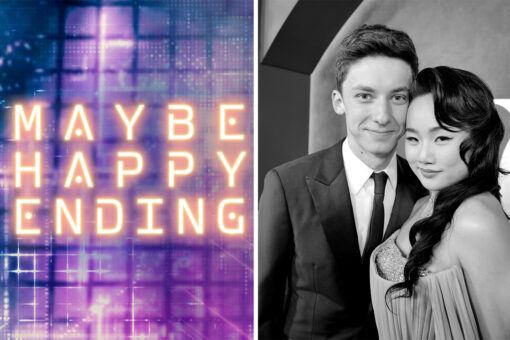When you mention Miracle at the Meadowlands 2 to any Eagles fan, the first thing that pops into their head is the final play of the game. On December 19, 2010, my father and I engaged in our standard Sunday ritual of screaming obscenities at the TV. After all, this was a “must-win” game for the Philadelphia Eagles against our division rival, the New York Giants — the winner would take the division lead and represent the NFC East in the playoffs.
For three excruciating quarters, we watched our beloved Birds get pummeled and our playoff hopes go down the drain. Down 31-10 with seven minutes left in the game, we thought there was no coming back.
A successful Eagles onside kick, a “Giant” missed tackle, and 21 unanswered points later, the Eagles managed to tie the game 31-31. With 14 seconds left on the clock, against all logic, Giants punter Matt Dodge booted a line-drive directly to DeSean Jackson at the 35 yard line. After initially bobbling the ball and backpedaling five yards, Jackson managed to zoom past every defender and strut parallel to the goal line with the ball above his head before entering the endzone a Philadelphia hero. The Eagles won the game 38-31 and went on to the playoffs, but it was that play that cemented DeSean Jackson’s legacy in Philadelphia.
After being cut by the Eagles in 2014 and spending the next several years playing for Washington and Tampa Bay, DeSean Jackson returned to the Eagles in 2019. The collective Eagles fan response was overwhelmingly positive. Now older and wiser, Jackson would be a mature veteran leader with the speed, athleticism, and character intangibles to help the Birds thrive, both on and off the field. An avid advocate for racial justice, Jackson also facilitated important conversations with his white teammates after the murders of Ahmaud Arbery, George Floyd, and Breonna Taylor in efforts to start dialogues and create change.
So this past Tuesday, when DeSean Jackson posted a passage on Instagram filled with anti-Semitic tropes, to say I was disappointed is putting it lightly. My grandparents were Holocaust survivors who experienced some of the worst atrocities one could imagine. To see someone post quotes attributed to Hitler in a positive light was appalling (it was later determined that the quote was misattributed, but still, pretty awful) and it deeply hurt to have a player on my team perpetuate such hateful rhetoric in a way that felt so personal.
The following day, Jackson apologized, stating he has no hate in his heart, and that his intention was to uplift and educate the Black community. There is no question that what DeSean posted was abhorrent, regardless of intention. But context matters, and Jackson’s lived experience as a Black man and Black NFL player cannot be ignored.
After Jackson’s posts went up, there was a big discrepancy in how the media reported this story versus defensive end Nick Bosa’s history of racist tweets (The San Francisco 49ers drafted him second overall in 2019 despite “character concerns”). The backlash to Jackson was swift — many (mostly white) fans and sports media personalities clamoring for him to be immediately cut from the team. But when former Eagles wide receiver Riley Cooper was caught on camera saying a racial slur, he was slapped with a five-day suspension from training camp, an undisclosed fine, and “counseling” (the type of counseling he received remains ambiguous), only to be rewarded with a five-year, 25 million dollar contract a year later. And there was far less scrutiny when the New England Patriots drafted Justin Rohrwasser, a white kicker with a “three percenter” tattoo (Rohrwasser later apologized and removed the tattoo). All while Colin Kaepernick remains blackballed from the NFL for peacefully protesting during the national anthem.
Immediately cutting Jackson is not the answer, and there is an opportunity for individual and community growth. Jackson has since reached out to Philadelphia-area Jewish leaders to facilitate conversations, apologized to the Jewish community at large, and pledged to further educate himself. Julian Edelman, a Jewish wide receiver and Super Bowl LIII MVP on the New England Patriots, offered to visit both the Holocaust Museum and the Museum of African-American History with Jackson in efforts to spread awareness on both sides and begin open and honest conversation. Today, Edelman tweeted that he and Jackson had a productive conversation last night and committed to learning and growing together. Forgiveness is a mitzvah, and one that we must reflect on in both contexts of how we forgive and how we can commit to change our own actions when we have caused pain.
You can and should acknowledge that anti-Semitism remains a very legitimate threat to Jewish people and the fight for equality and justice needs to include us. You can and should also acknowledge that in the fight against anti-Semitism, we cannot ignore the very legitimate threat that Black people experience daily simply due to the color of their skin. You can feel angry about Jackson’s posts — and have every right to be — but you cannot use anti-Semitism as a veil for anti-Blackness and racist complicity. If you are not actively standing up for Black lives and speaking out against racist actions and behaviors, “never again” means nothing.
White Jewish people are at a crossroads of experiencing both marginalization and benefitting from systemic white supremacy. Yes, we have historically faced unfathomable trauma and horrors at the hands of those who have “othered” us. But in the modern Western world, we are not visibly “othered” and generally do not have to worry about police brutality or our physical safety every time we walk out the door. As a group of historically oppressed people, white Jewish people have a moral and ethical responsibility to ensure that “never again” reigns true for all. And we have some serious work to do.
I don’t claim to have the answers, but I am learning more every day. Actively working to dismantle white supremacy is tikkun olam, and standing up for Black lives is to help do our part in repairing the world. We can do so while also speaking out against anti-Semitism and encouraging others to learn and evolve in that regard as well.
As for Jackson, I’ll always have a special place in my heart for that miracle play. But I’m hopeful he can create a new legacy in Philadelphia — one where he learns from his mistakes and continues to educate himself, speaks out against hatred in all forms, facilitates difficult conversations with his white teammates, and creates sustainable and positive change. We should all be doing the same.
Image of DeSean Jackson by Carmen Mandato/Getty Images.



